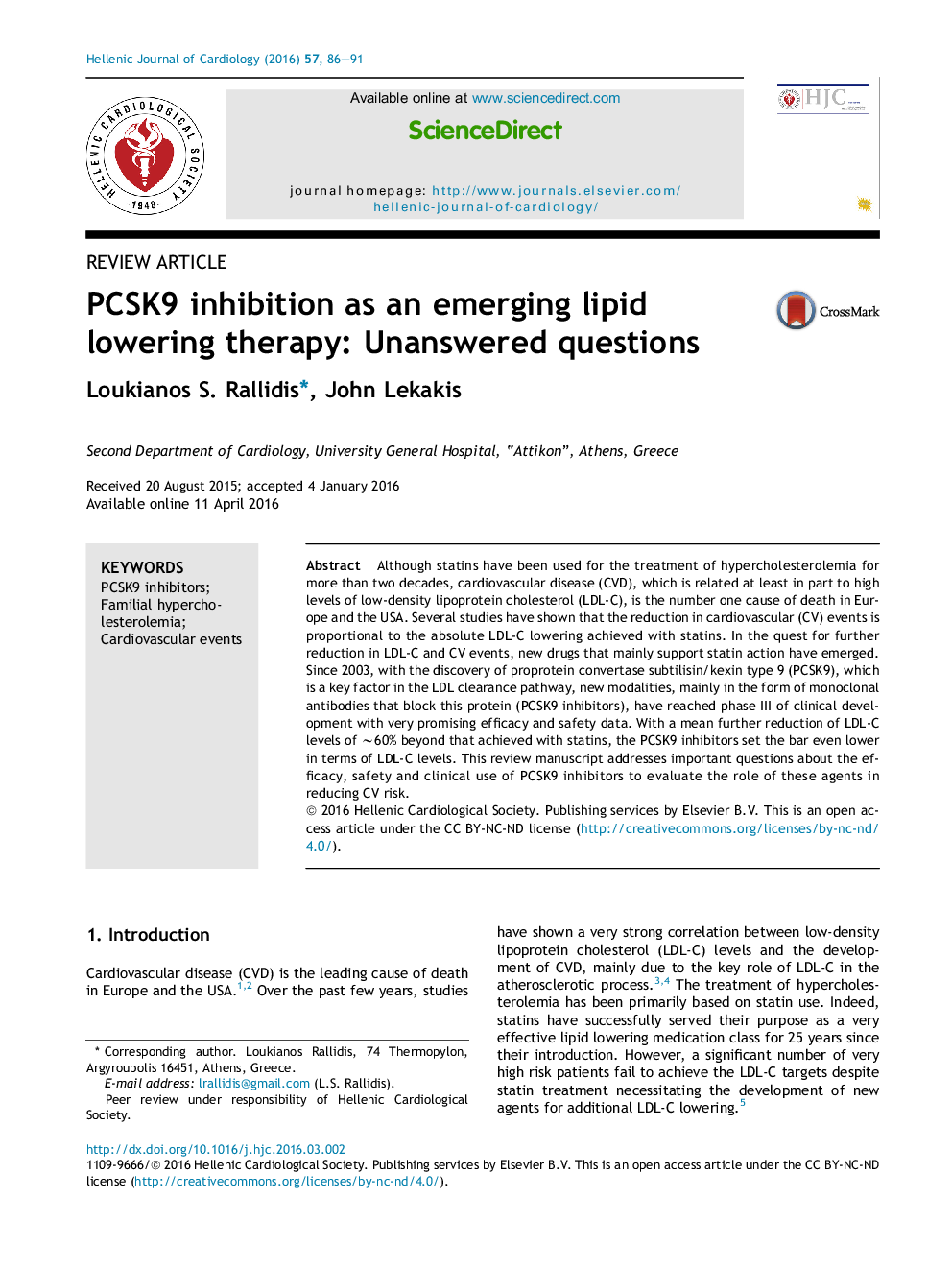| Article ID | Journal | Published Year | Pages | File Type |
|---|---|---|---|---|
| 2925969 | Hellenic Journal of Cardiology | 2016 | 6 Pages |
Although statins have been used for the treatment of hypercholesterolemia for more than two decades, cardiovascular disease (CVD), which is related at least in part to high levels of low-density lipoprotein cholesterol (LDL-C), is the number one cause of death in Europe and the USA. Several studies have shown that the reduction in cardiovascular (CV) events is proportional to the absolute LDL-C lowering achieved with statins. In the quest for further reduction in LDL-C and CV events, new drugs that mainly support statin action have emerged. Since 2003, with the discovery of proprotein convertase subtilisin/kexin type 9 (PCSK9), which is a key factor in the LDL clearance pathway, new modalities, mainly in the form of monoclonal antibodies that block this protein (PCSK9 inhibitors), have reached phase III of clinical development with very promising efficacy and safety data. With a mean further reduction of LDL-C levels of ∼60% beyond that achieved with statins, the PCSK9 inhibitors set the bar even lower in terms of LDL-C levels. This review manuscript addresses important questions about the efficacy, safety and clinical use of PCSK9 inhibitors to evaluate the role of these agents in reducing CV risk.
